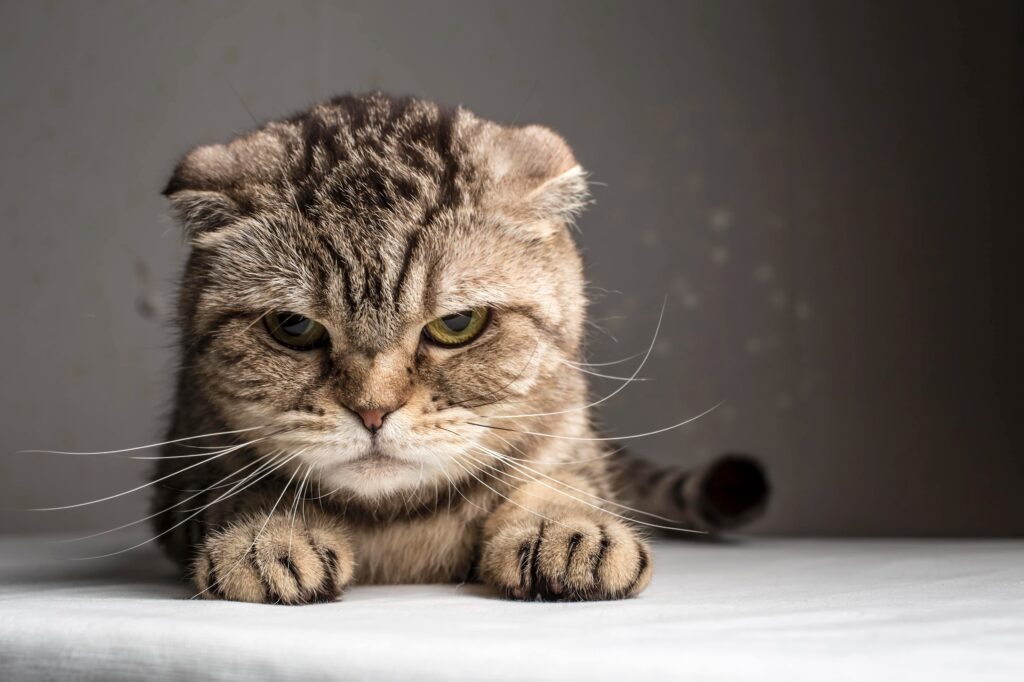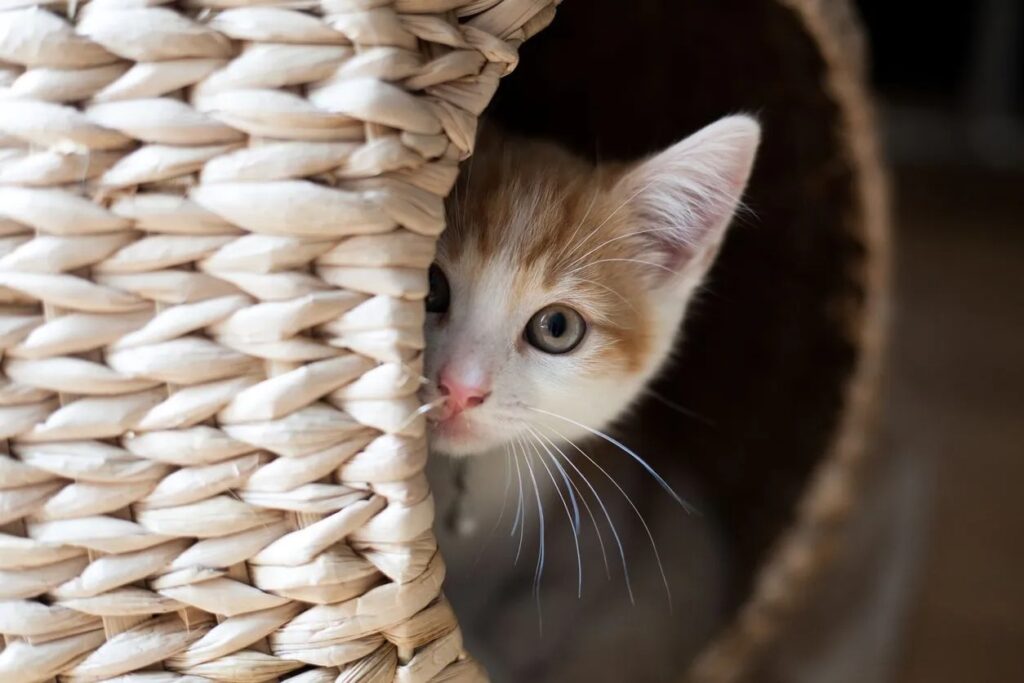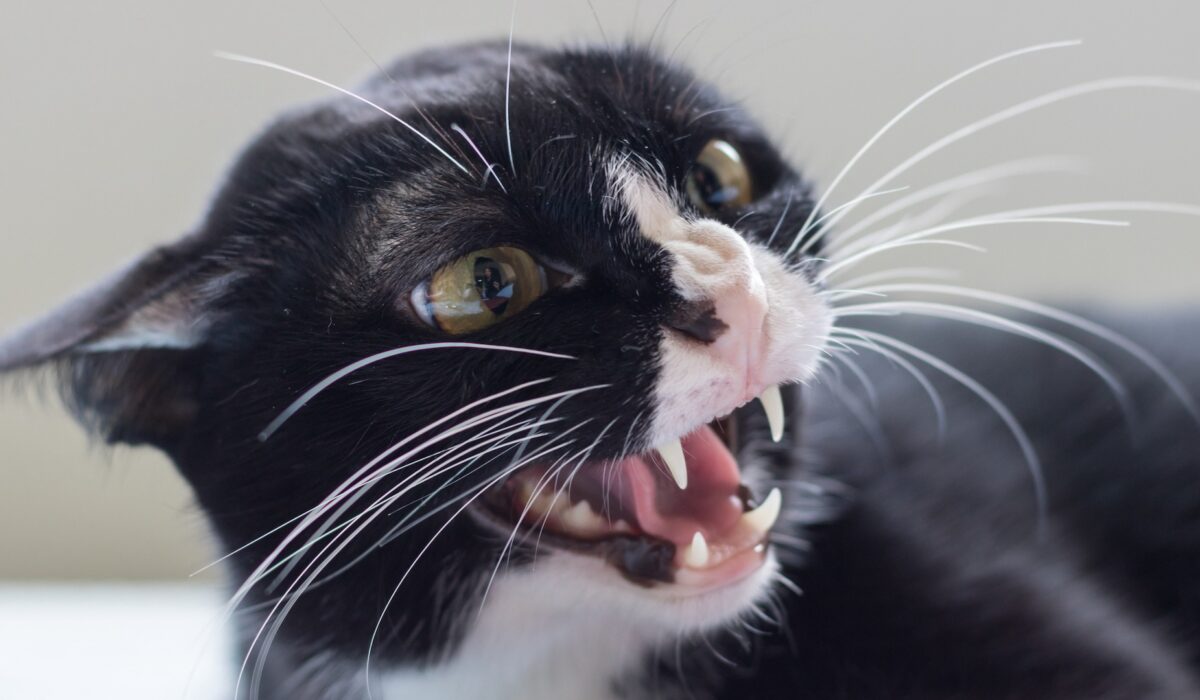Signs a Cat Is Stressed: How to Tell When Your Feline Friend Is Feeling Overwhelmed
As a feline parent, it’s born to demand your fast buddy to exist lucky, cozy, and content. Our low-lying jacket- ball might live hiding gestures. That they’re feeling stressed out without showing it blatantly. Knowing the signs a cat is stressed is vital to icing their well- being . And can help you take steps to soothe their anxiety. Pussycats are naturally masters of disguise. They frequently mask their discomfort until it reaches a breaking point. Noticing these small signs early can greatly help keep your kitty healthy and happy.
In this companion, we’ll explore the common signs a cat is stressed. What causes stress in pussycats. And practical tips to help them relax and recapture. Whether you’ve lately moved, introduced a new pet, or noticed changes in behavior. These signs will empower you to be a better caregiver for your nimble friend.
Feting the Signs a Cat Is Stressed: What Actions to Look For
concluding the signs a cat is stressed can exist sensitive . Because pussycats are naturally private creatures that tend to hide their passions. There are clear signs that can warn you when your cat is stressed. Keep an eye out for these signs.
1. Unforeseen changes in behavior
One of the foremost signs a cat is stressed is abrupt shifts in their usual routines. However, aggressive or exorbitantly conservative, If your calm and friendly nimble . Suddenly becomes frosty. These shifts may manifest as avoiding mortal commerce. Losing interest in toys, or showing discomfort in familiar surroundings.
2. Inordinate grooming or tone – detrimental
Pussycats frequently use fixing as a way to tone-soothe. But when they’re stressed, this can turn into over-grooming. Leading to bald patches, scabs, or bothered skin. However, smelling or scratching exorbitantly, if you catch your cat shellacking.
3. Hiding further than usual
They might stop eating fully, which can snappily . Beget health problems if it continues. Changes in eating habits are frequently clear . And concerning signs that something is wrong.
While some pussycats are naturally shy, a conspicuous increase in hiding gestures. clearances attention.
4. Changes in Appetite
A stressed cat may witness unforeseen loss of appetite or eat way further than usual. They might stop eating completely. . Changes in eating habits are often clear . And concerning signs that something is wrong.
5. Communication and Restlessness
Still, meowing exorbitantly, or seeming unfit to settle down. If your cat starts howling.
Your kitty may show anxiety through:
- Pacing around
- Pawing at the door.
- Scratching the furniture.
6. Waste Box Problems
. However, if they’re avoiding the waste box altogether, stress may be a malefactor. If you notice your cat urinating or defecating outside the waste box. Changes, new faves, or loud noises can disrupt their routine and beget waste box issues.
7. Aggression Toward Humans or Other Creatures
. Indeed towards familiar people or other faves. Growling, whizzing, smelling, or swatting are protective actions indicating discomfort. Don’t take it tête-à-tête — your cat’s overwhelmed.
8. Purring Exorbitantly or Not at All
While purring is frequently associated with pleasure. It can also be a sign of pain or stress if it occurs in a worried cat. A stressed cat may stop purring altogether, especially if they’re feeling anxious or bad.

Common Causes of Stress in Pussycats
Stress in cats can arise from a variety of causes, affecting their health and behavior.
Common triggers include changes in the manage terrain, such as moving to a new home. Introducing a new pet or a new family member. . Dislocation of their routine, including irregular feeding times or trips, can increase anxiety. Lack of hiding spots or safe spaces, inadequate play, or neglect can make a cat feel insecure.
Medical issues or pain frequently beget stress as well. Also, indecorous running or rough relations with humans or other faves may lead to stress. Feting these triggers can help possessors provide more support . Their nimble companions and produce a calm, secure terrain. Knowing why your cat is stressed can help you fix the real problem instead of just treating the symptoms. Then there are some common triggers.
1. Environmental Changes
Pussycats are brutes of habit. Moving to a new home, redecorating, or indeed rearranging . Cabinetwork can throw their world upside down. They crave stability, so any unforeseen change can induce stress.
2. Preface of new faves or people
. Especially if boundaries aren’t set or propulsion aren’t handled easily.
3. Loud Noises and External Disturbances
Fireworks, showers, construction work, or loud music can spark stress responses. Sensitive pussycats may hide or become more anxious during noisy events.
4. Routine dislocation
Changes in feeding schedules, playtime, or diurnal routines can unhinge pussycats. They’re brutes of habit, and shifts in their schedule can lead to passions of instability.
5. Lack of Enrichment and Play
Tedium is a silent stress. Pussies bear inner stimulation and animal exertion. If you look unlooked-for behavioral fluxes along with animal symptoms.. Without enrichment like toys, scratching posts, or climbing trees. They can become anxious or depressed.
6. Health Problems and Pain
Beginning medical issues, discomfort, or pain can beget stress—suchlike behaviors. However, a warhorse visit is in order.
7. Shy space and sequestration
Overcrowded homes or participating space with exorbitantly active cat can leave. Some pussycats feeling trapped or overwhelmed. They need their own home to retreat and relax.
How to Help Your Stressed Cat Relax: Practical Tips
Now that you are apprehensive about the signs that a cat is stressed. Let’s explore some effective ways to ease their anxiety.
1. Produce a calm, safe space.
. When you suit demand to fabricate acclimations, present them operationally. Designate a quiet area where your cat can retreat and feel secure. A soft coverlet, familiar toys, and a caching spot like a cardboard box can make your kitty feel safe. Avoid loud noises and unforeseen dislocations in this space.
- Maintain a harmonious routine
Stick to regular feeding, play, and cuddle times. Routine provides a sense of security and familiarity, helping your cat feel more at ease.
3. Use Environmental Enrichment
Give a variety of toys, scratching posts, climbing trees, and mystifying affluents. Stimulating their mind and body can palliate tedium and reduce stress.
4. Exercise Gentle Interaction
Don’t force your stressed cat into cuddling or social commerce. Let them come to you on their own terms, and be patient. Building trust is crucial.
5. Apply Pheromone Diffusers
Products emit synthetic pheromones that mimic. The comforting scents of pussycats’ natural signals. These can help soothe stressed kitties, especially during changes or stressful events.
6. Cut Environmental Changes
Still, avoid making big changes to their terrain each at formerly, If possible. When you do need to make adaptations, introduce them operationally. . Their grade of biography but alike harden the chain between you.
7. Respect Their Need for Sequestration
Allow your cat time alone when they seek it. Esteeming their space prevents fresh stress and helps them recapture their countenance.
8. Consult a veterinarian.
Patient stress or behavioral issues may bear medical intervention. Your warhorse can recommend calming specifics, gesture. Remedy, or other results acclimatized for your cat’s requirements.

Final Studies: Be Attentive, Case, and Love Your Feline Friend
Feting the signs a cat is stressed is pivotal to furnishing them with the stylish care possible. Pussycats are experts at hiding their passions. Which makes it all the more important for us to be observant and compassionate. By understanding what causes stress and how to spot it beforehand. You can make your home a more peaceful paradise for your furry companion.
Flash back, tolerance, and gentle consolation are your stylish tools. Take action snappily to address the underpinning causes and produce a calm terrain. If you see signs of stress. Your trouble won’t only ameliorate .
Your kitty deserves a stress-free life filled with love, comfort, and security. Stay attentive, stay loving, and no way. Vacillate to seek professional advice if demanded. A happy cat means a happy home!
Conclusion:
In conclusion, spotting stress signs in cats is important. Also, knowing what causes stress helps keep them healthy. They should honor their need for alone time. Using tools like enrichment activities and pheromone diffuser can help. When in wistfulness, consulting a veterinarian can offer fresh support. This strengthens your bond and fills their life with comfort and happiness. possessors can assist break their concern by creating a calmness, pacific terrain. carefulness, forbearance, and affection are key to advancing a lucky, robust cat. Creating a pacific and confident place helps your feline flourish




